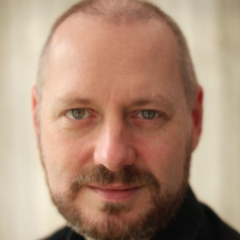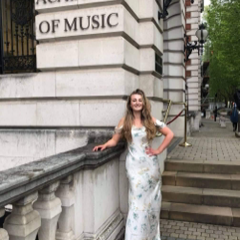What is opera singing and how is it different from other types of singing?
Opera singing is a distinct art form that combines vocal performance with theatrical elements, such as acting and stage movements. Unlike other singing styles, opera singing requires singers to project their voice over an orchestra without the use of microphones. This necessitates the development of exceptional vocal techniques, including breath control, vocal range, and resonance. Additionally, opera singers often perform in multiple languages, adding another layer of complexity. The emotional depth conveyed through opera, combined with its elaborate staging and classical music, sets it apart from genres like pop or jazz. Opera singing not only showcases vocal prowess but also the ability to embody a character fully, making it a unique and immersive experience for both performers and audiences.
How can I become an opera singer in the UK?
Becoming an opera singer in the UK requires a combination of formal education, practical experience, and continual vocal training. Many aspiring opera singers begin by enrolling in a music conservatoire or university with a strong vocal program, such as the Royal Academy of Music in London. Obtaining a degree in vocal studies offers foundational skills in music theory, language diction, and stage performance. Beyond formal education, participating in workshops, masterclasses, and local opera productions is crucial for gaining practical experience. Engaging a vocal coach can also provide personalised guidance and support. Networking with industry professionals and auditioning for roles in opera companies like the Royal Opera House or Opera North can lead to professional opportunities. Persistence, dedication, and a passion for the art form are essential in this competitive field.
What are some famous opera arias that every singer should know?
Opera arias are standalone pieces within an opera that showcase a singer's vocal abilities and emotional expression. Some of the most celebrated arias that every aspiring opera singer should be familiar with include "Nessun dorma" from Puccini's *Turandot*, "La donna è mobile" from Verdi's *Rigoletto*, and "Habanera" from Bizet's *Carmen*. These arias are not only technically challenging but also beloved by audiences worldwide. "O mio babbino caro" from Puccini's *Gianni Schicchi* and "Una furtiva lagrima" from Donizetti's *L'elisir d'amore* are also essential pieces that highlight a singer's ability to convey deep emotion. Mastering these arias can enhance a singer's repertoire and prepare them for auditions and performances, offering a glimpse into the rich tradition and diverse styles of opera.
Why is breath control important in opera singing?
Breath control is a fundamental aspect of opera singing, as it directly impacts a singer's ability to sustain long phrases, produce powerful notes, and maintain vocal health. Proper breath control allows singers to manage their breath efficiently, providing the necessary support to project their voice over an orchestra without strain. Techniques such as diaphragmatic breathing and controlled exhalation enable singers to maintain steadiness and precision in their vocal delivery. Inadequate breath control can lead to vocal fatigue and compromise the quality of sound, making it crucial for opera singers to hone this skill through regular practice and vocal exercises. By mastering breath control, opera singers can achieve the dynamic range and expressiveness that are hallmarks of this art form.
Are there opera singing teachers available in London?
Yes, London is home to a diverse range of opera singing teachers, many of whom have extensive professional experience and training from renowned institutions like the Royal Academy of Music. These teachers offer personalized instruction tailored to various skill levels, from beginners to advanced students. Lessons may take place in a studio setting, online, or at the teacher's location, providing flexibility for students. Teachers in London often have connections with local opera companies, providing students with opportunities to participate in workshops and auditions. With the city's rich cultural scene, students also have access to numerous performances and operatic events that can enhance their learning experience. Whether you're looking to refine your technique or start your operatic journey, London offers a wealth of resources and expertise.
How can opera singing benefit my overall well-being?
Engaging in opera singing can have numerous benefits for both physical and mental well-being. Physically, practising opera singing strengthens respiratory muscles, enhances lung capacity, and improves posture. These exercises contribute to better overall fitness and increased stamina. Mentally, opera singing has been shown to reduce stress and anxiety, as the act of singing releases endorphins, promoting a sense of relaxation and happiness. The discipline and focus required for mastering opera can also enhance cognitive abilities, such as memory and concentration. Additionally, performing in front of an audience can boost self-confidence and social skills. Whether pursued professionally or as a hobby, opera singing is a fulfilling activity that nurtures creativity and emotional expression while providing holistic health benefits.

















